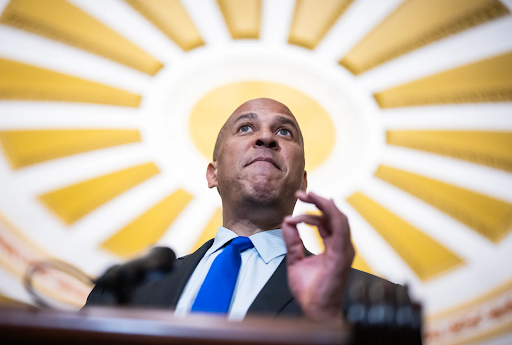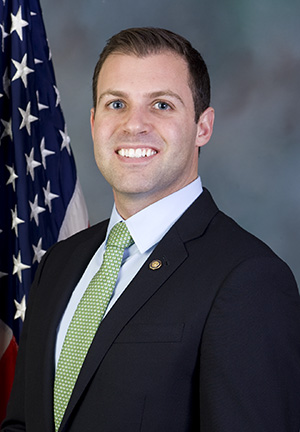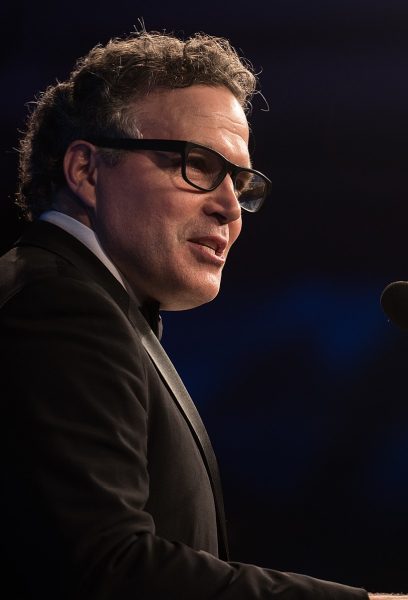The Future of the Affordable Care Act: A Conversation with Professor Sabrina Terrizzi
The United States has a newly unified Republican-led government and, as promised, the life saving Affordable Care Act (ACA) is the first piece of legislation in its crosshairs. The Republicans have been eager to repeal health care reform ever since its ratification, the Obama administration being the last bastion preventing them from doing so. With President Obama having left office, the Republicans are preparing to pull the trigger.
The repeal of the act will prove a Pyrrhic victory for the GOP, because the legislation is expected to have enormous consequences for both the lives of thousands and the aggregate US economy. Both are expected to suffer “bigly” from Trump’s repeal, and the GOP has yet to put forward a credible plan to replace it. So to answer some difficult questions of what this all means for the future of healthcare, I sat down with health care economist Sabrina Terrizzi.
Terrizzi is a well-known economics professor at Moravian College who specializes in health care and micro-economics. Her research specifically pertains to health care and the effects of the Affordable Care Act on health outcomes, utilization, and income inequality.
Ignatios Draklellis (ID): What exactly is your research about regarding the Affordable Care Act?
Sabrina Terrizzi (ST): My research flows and changes, but I have a lot of open research projects and three that are related to the Affordable Care Act. One of them is currently under revise and resubmit; that means it’s been submitted to a journal and they read it and said okay, we have some questions for you to answer before we consider publishing it. It’s specifically about the dependent mandate of the Affordable Care Act that was established in 2010.
ID: What is the dependent mandate?
ST: The mandate specifies that a “child” — an adult child — can stay on their parents’ plan until the age of 26, regardless of their employment status, marital status, any status. That’s a popular component of the ACA.
ID: Does this mandate affect college students receiving health care?
ST: Yes. When I was in grad school, I did not have health insurance because [ACA] was not a thing. I had pre-existing conditions, but I could not get an insurance company to accept me and was unable to get health insurance.
ID: What has research found regarding the success of the mandate?
ST: This research actually looks at that age group. So how has ACA, pre- and post-adoption, affected their entrepreneurship activity? We actually find that for students in particular, entrepreneurship has increased as a result of this mandate. We think about how [the dependent mandate] allows people under 26 to have more choices for what they do for work, because now they don’t have to go get a job just to gain health insurance. And when you have a job just to get health insurance, that’s called “job lock.” The ACA does a lot for [many] groups of people to reduce job lock. Specifically, we do find that in the student population they increased entrepreneurship opportunities.
In the other research project, we look at the expansion of just health insurance in general across all populations from 2010-2015, and we look at how that affects one’s ability to access health care. I’m doing that in partnership with some political scientists at Muhlenberg College, so we can look at other factors that affect one’s access to health care, not just their insurance. We control for the Medicaid expansion, we control for different policy environment, if the state legislature is Republican or Democratic to see if those types of factors influence one’s ability to have insurance, the ability to have a primary care physician, and how cost is a variable to care.
ID: How effective has the ACA been?
ST: The ACA has been incredibly effective in getting people health insurance, and one of its main goals was to increase access to health insurance. Prior to the ACA, we had the highest rate of uninsurance of any developed country in the world. Now, the last numbers are in and we are under 10%, which is the lowest uninsurance rate we’ve had in over 50 years. Pre-ACA [that number] was 15.7%, and now we’re at 8.6% of people who don’t have health insurance. So, it has been incredibly successful in getting people health insurance.
ID: Even with the ACA, the United States pays more for health insurance than any other country in the world. I never would have guessed that. We also have poorer outcomes than other developed countries. Why do you think that is?
ST: Right. This is a complicated question. I think there are many reasons. One is because we tend to focus on treatment as a method of prevention, which is much more expensive than prevention. We also have a lot of innovation, which is also expensive. We also have very expensive medical schools, and if we have very expensive medical schools, we have very expensive physicians because they come out [of school] with a lot of debt. Our web of health insurance has inefficiencies. We also have a higher rate of obesity and a higher rate of diabetes, and these are expensive illnesses.
ID: So we often hear in the political discourse that the ACA has resulted in a significant increase in premiums. Do you think there’s any merit to that claim?
ST: Yes. Overall health care costs have been rising and premium rates have gone up. So there is some increase in premiums that would have happened regardless of whether we had the ACA or not. The ACA had a lot of requirements, too, and some of those requirements were directly associated with what health insurance companies had to cover. Prior to the ACA, you could have a bare minimum health insurance plan, which if you needed to use wouldn’t have been helpful. Post-ACA, there were minimum regulations. This health insurance plan must cover preventative care; you can’t have a lifetime max on your payout, which in the past was not the case. If you had gotten cancer and your lifetime max benefit was $100,000 and your treatment was over that, your insurance stopped paying it. That’s no longer allowed.
All of these conditions increase the value of the health insurance but also increased the cost. Still, the premiums have not risen for everybody, and that’s important to understand. It depends on where you live, it depends on where you buy your insurance, and if you get a subsidy. So some people, yes, absolutely, have seen increases in their premiums. Other people have actually seen reductions in their premiums.
ID: Really?
ST: Yeah, it depends on what state you’re in, and most of this is happening for people who are purchasing their health care on the exchange. For people purchasing their health care through their employer, if they work at a large organization, the premium increases and they’re seeing the natural rate of increase. It’s not the result of the ACA.
ID: Why do you think these companies are now pulling out of the ACA? Aetna pulled out last year, and I believe Cigna announced that it’s pulling out, too. Why is this unraveling without any action from the state so far?
ST: This is an interesting question, especially the case of Aetna. So two things here could be valid reasons for insurance companies to want to pull out of the exchange. Insurance companies are for-profit companies. The people who are buying health insurance on the exchange tend to be those who don’t have the option to buy insurance through their employer, and these people tend to be sicker. So they tend to cost the companies more money than healthier people. This is not as profitable a group of people. That’s a legitimate reason why companies would want to pull out of the exchange.
ID: Do you know if these companies have released any definitive public statement?
ST: No. What’s interesting is that it’s just coming out now. There are some sources, especially in the Aetna case, that are saying this is not profitable, but it’s actually political. Aetna was recently not permitted to merge with another health care company, and prior to that ruling, the CEO of Aetna sent a memo to the Department of Justice saying that, “if you do not allow us this merger, we will pull out of these exchanges.” And that has just come to light. Aetna had been telling people it was this unprofitable story, but really it was this merger. Then the merger was denied because of monopoly power. Aetna retaliated by pulling out of the exchanges.
ID: That leads to my next question. I’ve seen a lot of speculation about what this [repeal] would mean for the United States’ economic performance and for consumers in general. What do you think?
ST: I think the biggest concern is the loss of health insurance for the most vulnerable populations. When I say vulnerable, I mean the people that don’t have the opportunity to get health insurance through their employers. We’re talking about the Medicaid expansion going away, which could mean that 20 million people don’t have health insurance anymore. These are 20 million for whom the benefits of health insurance are the greatest, including college-age students. That could change the labor force participation rate. It could mean reductions in education because now people can’t go to school anymore because they have to get a job so they can pay for health insurance. We talk about CHIP, the children’s health insurance program. . .
ID: Was that included in the ACA?
ST: It was not included in the ACA, but I’ve read some material that if funding for the Medicaid expansion goes away, funding for CHIP goes away. So we’re talking about children.
I think the most concerning part of this [repeal] is the potential loss of health insurance. As far as the larger economy is concerned it depends. I think the health insurance economy itself will be in a bit of turmoil for a while if this were to happen. What I’m hearing is “we want a repeal, but we don’t know what will replace it” or, “we’re going to repeal these portions but not these other portions.” [However], all the portions are all interrelated, so if you take one away, you don’t necessarily get to keep the other and have it function properly. If you take away the individual mandate to buy insurance, you don’t get to keep the pre-existing insurance coverage because rates will skyrocket. People will wait to get insurance until they need it.
So the health insurance economy I think is the most vulnerable, not necessarily the aggregate US economy.












Brian W. Smith • Apr 2, 2017 at 11:54 pm
The unaffordable health care act is a disaster and will implode on its own if not fixed soon. The mandate to buy insurance or be fined every month is pure Marxism as we know it. What will help is a much smaller plan which includes no preexisting conditions and being able to stay on your parents plan to 26. Also free markets will make it better. Allowing people to cross state lines to buy health insurance and being able to pick the plan with the things you need and not a plan that includes everything you don’t need is necessary for every person buying insurance. More competition will drive down costs and allow people to buy their own affordable health care plan that works best for that individual. Socialized medicine doesn’t work and never will. Every country that has it doesn’t like it.
Jamie Horvath • Feb 21, 2017 at 6:23 pm
After stumbling across this article, I was immediately drawn into the insightful perspective of Professor Terrizzi on the future of the ACA. Ignatios did a stellar job with leading questions to draw out informative answers. Sadly, no matter what happens, it seems the potential for many people to struggle with loss of health care is imminent.
Joyce Hinnefeld • Feb 18, 2017 at 10:58 am
This is a great piece! So informative, and so clear. Thanks to you both, Ignatios and Dr. Terrizzi.